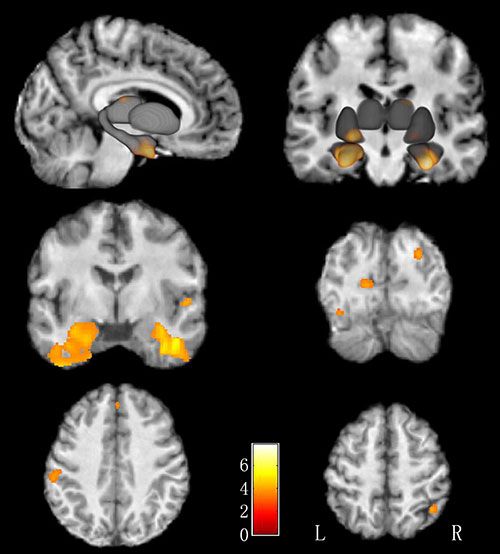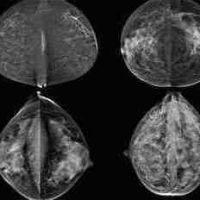New research from China shows that children who have been left without direct parental care for extended periods of time have larger grey matter volumes in the brain. The finding suggests that the lack of parental care affects brain development in children, according to the study presented on Monday, 30 November, at the annual meeting of the Radiological Society of North America (RSNA).
In China, large numbers of workers are migrating away from their children in pursuit of better jobs. Researchers wanted to study how this migration has affected the millions of children who have been left in the care of relatives for a period of more than six months. Previous studies have reported that parental care can directly affect brain development in offspring.
"However, most prior work is with rather severe social deprivation, such as orphans. We looked at children who were left behind with relatives when the parents left to seek employment far from home," says study author Yuan Xiao, PhD candidate at the Huaxi MR Research Center and the Department of Radiology at West China Hospital of Sichuan University in Chengdu, Sichuan, China.
Professor Su Lui led the study that was conducted at the Second Affiliated Hospital & Yuying Children's Hospital of Wenzhou Medical University. MRI exams from 38 left-behind boys and girls (ages 7 to 13) were compared to MRI exams from a control group of 30 boys and girls (ages 7 to 14) living with their parents. Prof. Lui's team then compared the grey matter volume between the two groups and measured the intelligence quotient (IQ) of each participant to assess cognitive function.
The team found larger grey matter volumes in multiple brain regions, particularly in emotional brain circuitry, in the left-behind children compared to children living with their parents. The mean value of IQ scores in left-behind children was not significantly different from that of controls, but the grey matter volume in a brain region associated with memory encoding and retrieval was negatively correlated with IQ score.
Since larger grey matter volume may reflect insufficient pruning and maturity of the brain, the team says the negative correlation between the grey matter volume and IQ scores suggests that growing without parental care may delay brain development.
"Our study provides the first empirical evidence showing that the lack of direct parental care alters the trajectory of brain development in left-behind children," Xiao noted. "Public health efforts are needed to provide additional intellectual and emotional support to children left behind by parents."

Carine Khoury
Web Editor, HealthManagement.org
Source and image credit: RSNA
In China, large numbers of workers are migrating away from their children in pursuit of better jobs. Researchers wanted to study how this migration has affected the millions of children who have been left in the care of relatives for a period of more than six months. Previous studies have reported that parental care can directly affect brain development in offspring.
"However, most prior work is with rather severe social deprivation, such as orphans. We looked at children who were left behind with relatives when the parents left to seek employment far from home," says study author Yuan Xiao, PhD candidate at the Huaxi MR Research Center and the Department of Radiology at West China Hospital of Sichuan University in Chengdu, Sichuan, China.
Professor Su Lui led the study that was conducted at the Second Affiliated Hospital & Yuying Children's Hospital of Wenzhou Medical University. MRI exams from 38 left-behind boys and girls (ages 7 to 13) were compared to MRI exams from a control group of 30 boys and girls (ages 7 to 14) living with their parents. Prof. Lui's team then compared the grey matter volume between the two groups and measured the intelligence quotient (IQ) of each participant to assess cognitive function.
The team found larger grey matter volumes in multiple brain regions, particularly in emotional brain circuitry, in the left-behind children compared to children living with their parents. The mean value of IQ scores in left-behind children was not significantly different from that of controls, but the grey matter volume in a brain region associated with memory encoding and retrieval was negatively correlated with IQ score.
Since larger grey matter volume may reflect insufficient pruning and maturity of the brain, the team says the negative correlation between the grey matter volume and IQ scores suggests that growing without parental care may delay brain development.
"Our study provides the first empirical evidence showing that the lack of direct parental care alters the trajectory of brain development in left-behind children," Xiao noted. "Public health efforts are needed to provide additional intellectual and emotional support to children left behind by parents."

Figure 4.The group comparison result of grey matter volume between left-behind children and the non-left-behind children.
Carine Khoury
Web Editor, HealthManagement.org
Source and image credit: RSNA
Latest Articles
healthmanagement, brain development, parental care, children, migration, #RSNA15, RSNA 2015
New research from China shows that children who have been left without direct parental care for extended periods of time have larger grey matter volumes in the brain. The finding suggests that the lack of parental care affects brain development in childre



























